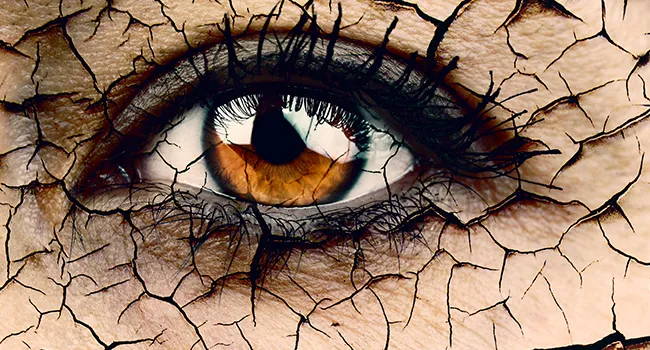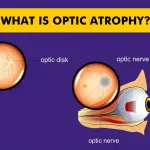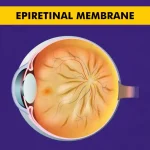Dry Eyes: Symptoms, Causes, and Treatment
Dry eye is a common condition in which a person does not have enough tears to keep his eyes lubricated and nourished. Tears play a vital role in maintaining proper eye health and give clear vision. Dry eyes are often a disorder seen in older people. Dry eyes never cause permanent vision loss, but a person suffering from it becomes prone to bacterial infection and eye inflammation.
Whenever we blink, tears in our eyelids spread across the front part of the eye, also known as the cornea. If eyes produce excess tears, then it flows into drainage ducts in the inner corners of the eyelids, which ultimately drains to the back of the nose. When tear production and drainage are not in fine balance, then it leads to poor tear quality.
Symptoms of dry eye
- Itchy eyes
- Burning sensation
- Eye fatigue
- Heaviness in the eyes
- Sore eyes
- Dryness in the eyes
- Red-eye
- Blurred vision
- Stringy mucus
- Difficulty in reading, or using computers, mobiles, etc. for long
Dry eyes causes
There are several causes for dry eyes, like:
- Age:
Ageing is a natural process. A majority of people over 60 years of age complain about dry eye disorder or its symptoms.
- Medical complications:
People who are already suffering from some eye-related conditions like blepharitis (inflammation of the eyelids), itching sensation on the eye surface, or inward or outward turning of eyelids have higher chances of developing dry eyes. People with diabetes, thyroid issues, and rheumatoid arthritis are also likely to have dry eyes symptoms.
- Gender:
Women are more likely to have dry eyes than men due to hormonal changes related with pregnancy, oral contraceptives, and menopause.
- Medications and certain surgeries:
There are certain medicines like blood pressure medications, decongestants, antidepressants that can lead to a reduction in tear production. Apart from this, long term usage of contact lenses and surgery such as Lasik can be a cause in the development of dry eyes.
- Environmental conditions:
Sometimes, it is the environment that triggers dry eyes. Certain factors such as windy and dry climates and exposure to smoke and dust lead to increased tear evaporation resulting in dry eyes.
How to reduce dry eye symptoms?
There are many things that you can do in your capacity to reduce dry eyes symptoms, like:
- Blink often:
Remember to keep blinking your eyes while working or staring on your computer screens. Blinking supports renewing tear films, thereby keeping your eyes moisturised and protected.
- Increase humidity in the air:
While being in the office or at home, you need to ensure that you live in an atmosphere that is not dry. Use a humidifier to moisten the air.
- Wear sunglasses:
You need to ensure to wear sunglasses whenever you are stepping out in the sun. Sunglasses with wraparound frames shields your eyes from the dry and dusty winds and the sun.
- Drink water:
Drinking plenty of water keeps your body hydrated. It benefits not only the body but is beneficial for the eyes as well. Water helps in maintaining fluid in the eyes and washes off the dust and debris whenever you blink.
- Nutritional supplements:
Eat a balanced diet. Nutritional supplements containing fatty acids might help in lowering dry eyes symptoms. Always ask your eye specialist if any dietary supplement could help in reducing dry eye issues.
Dry eyes treatment
Thankfully, there are several effective dry eyes treatment options available. Ask your eye specialist which option suits you the best, depending upon your eye condition.
- Artificial tear drops/ ointments:
Mild cases of dry eyes can be managed by using over the counter artificial tear solutions. These artificial drops supplement natural tear production. If your eyes dry out while sleeping as well, then you can use an ointment at night, if your eye specialist prescribes.
- Eye inserts:
If OTC drops do not work in your case, then you might need to go for using eye inserts as an option. You place eye inserts between your eyeball and the lower eyelid. Medicine is put into this that keeps your eyes moist throughout the day.
- Eye procedures:
Your doctor can recommend certain procedures to treat chronic dry eyes. They can prescribe using special contacts like bandage contact lenses that prevent moisture from escaping your eyes. They can also suggest you go for clearing oil glands. Apart from this, depending on your condition, they can recommend a procedure to partially or entirely plug tear ducts by using punctal plugs.
Centre for Sight is always there for your eye care needs. We have a team of a highly experienced team that has the credibility to treat complex eye injuries, diseases, and disorders. Having the most industry-leading technologies for treatment, our team is always in a position to treat any eye ailment. Be it an eye muscle surgery or something like dry eye syndrome, medical experts at CFS diagnose and treat each eye problem with utmost precision.
Article: All about Dry Eyes: A Brief Understanding
Author: CFS Editorial Team | Aug 16, 2020 | UPDATED 04:25 IST
*The views expressed here are solely those of the author in his private capacity and do not in any way represent the views of Centre for Sight.





